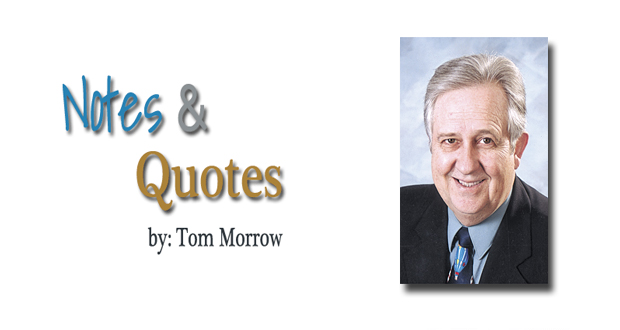The Legendary Film Star Who Was a General
By Tom Morrow
There were a number of Hollywood actors who joined the armed forces during World War II, but none of them equaled the service of James Stewart. He was first in uniform and the only movie/service member to rise in rank from private to full colonel in only four years.
Stewart went from actor to B-24 pilot completing more than 35 missions, then returned to Hollywood to continue his career. But, he didn’t cut his ties to the military. He spent active duty time during Vietnam War and stayed in the Reserves and worked his way through the ranks to major general.

James Maitland “Jimmy” Stewart was born May 20, 1908. He is among the most honored and popular stars in film history. A major Metro-Goldwyn-Mayer contract player, Stewart was known for his distinctive drawl and down-to-earth persona which helped him often portray American middle-class men struggling in crisis. Many of the films he starred in have become enduring classics. He was born in a small-town, (Indiana, PA), to a hardware store owner … like many film characters Stewart portrayed.
Before the War, Stewart was nominated for five Academy Awards, winning one in competition for The Philadelphia Story (1940). Later, he received an Academy Lifetime Achievement award in 1985, and in 1999, Stewart was named the third-greatest male screen legend of the Golden Age of Hollywood behind Humphrey Bogart and Cary Grant. The American Film Institute also named five of Stewart’s films to its list of the 100 best American films ever made.
A shy youngster, Stewart held a dream of flying enhanced by the legendary Charles Lindbergh. Ironically, he would portray Lindbergh 30 years later on film.
After college, Stewart and Henry Fonda became roommates and close friends in New York over the summer of 1932. With Fonda’s encouragement, Stewart took a screen test and received a seven-year contract with MGM at $350 a week.
His early interest in flying led Stewart to gain his private pilot certificate in 1935, and commercial pilot license in 1938. He often flew cross-country to visit his parents in Pennsylvania, navigating by the railroad tracks. Nearly two years before the Dec. 7, 1941, Japanese attack on Pearl Harbor, Stewart had accumulated more than 400 hours of flying time.
In 1940, Stewart was drafted into Army and became the first major movie star in uniform. Stewart was a private, but applied for an Army Air Corps commission and Service Pilot rating as both a college graduate and a licensed commercial pilot. At 33, Stewart was almost six years beyond the maximum age restriction for Aviation Cadet training. After a lot of red tape, Stewart received his commission as a second lieutenant shortly after the 1941, attack on Pearl Harbor.
After training, Stewart wanted assignment to an operational unit rather than serving as a recruiting symbol and aircraft ferry pilot. In early 1942, Stewart was asked to make a film to recruit the 100,000 airmen anticipated the air corps would need to win the War. The Air Corps recorded his voice for narration. The short recruitment film “Winning Your Wings,” appeared in movie theaters nationwide resulting in 150,000 new recruits.
Stewart was concerned that his expertise and celebrity status would relegate him to instructor duties “behind the lines.” Stewart, 33, appealed to his commander, a 30-year-old who understood his situation, recommended by then Captain Stewart to the commander of the 445th Bombardment Group, a B-24 Liberator unit.
To inspire the unit, Stewart flew as command pilot in the lead B-24 on several missions deep into Nazi-occupied Europe. Promoted as a major, then lieutenant colonel, his official tally of mission credits while assigned to the 445th and 453rd Bomb Groups was 20 more.
For combat action, Stewart received two Distinguished Flying Crosses, the French Croix de Guerre, and an Air Medal with three oak-leaf clusters.
Years after the War (on July 23, 1959) Stewart was promoted to USAF Reserve brigadier general. During his active duty periods, he remained current as a pilot of the B-36, B-47 and the B-52 bombers of the Strategic Air Command. In 1966, Brigadier General Stewart flew on a B-52 bombing mission during the Vietnam War.
After 27 years of service, Stewart officially retired on May 31, 1968. He received more recognition upon his retirement: the U.S. Air Force’s Distinguished Service Medal, and in 1985, President Ronald Reagan awarded him the Presidential Medal of Freedom, simultaneously advancing Stewart to the rank of Major General. He had a legendary career in film and television and is considered one of the greatest of Hollywood actors. James Steward died on July 2, 1997.



